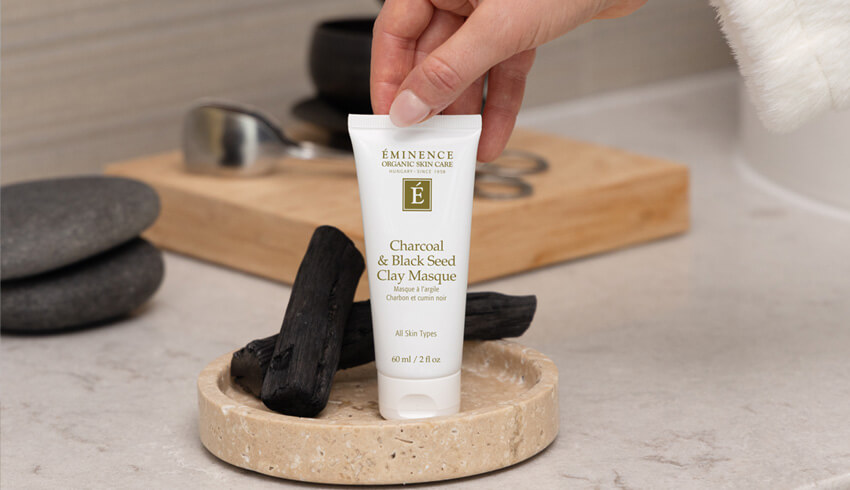
After endless time indoors, and the cooler months gaining on us, our skin is crying out for some additional love. While you might be a master of the cleanser-moisturizer combination, and even reach for a weekly mask, there’s a key component that is too often overlooked: facial oil. Throughout skin care’s recent history, facial oil has always received the short end of the stick in terms of reputation. It’s been difficult to unlearn our impression that applying oil to your face only fuels the acne flame — especially as a slew of beauty brands have capitalized on the misconception in the past and pitched face products as “oil-free.”
But it’s high time we understand that oils are crucial to round out a robust skin care routine. While lotions and serums are great for overall hydration, oil can tackle a range of specific issues: scar fading, de-aging, skin smoothing, even sebum balancing. Whether you’re a Vitamin C junkie or prefer a floral-infused formula, there’s a lot to explore when experimenting with beauty’s best-kept secret. Eminence Organics President Boldijarre Koronczay says: “... Facial oils absorb perfectly into the skin, leaving it hydrated and supple.”
What Are Facial Oils?
With roots in skin care dating back to Ancient Egypt and Asia, oils have long since been a go-to when it comes to hydration and repair. Because naturally-produced oils keep our skin cells fresh and hydrated, facial oils work to complement or, at times, supplement their process. They encompass fragrant plant oils (essential oils derived from flowers or roots of one plant or herb alone), non-fragrant plant oils and synthetic oils. Because of their emollience (their capacity to strengthen the skin’s outer layer via lubrication), they can seal in water softening your skin as a result.
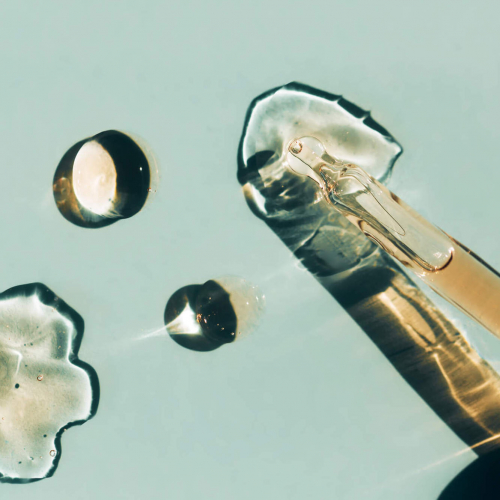
3 Benefits Of Facial Oils
1. Hydrate The Skin
So, we’ve worked out facial oil is a godsend, but what does it do that other products can’t? Well, as it turns out, a range of things. It’s easy to write off oils as just another unnecessary skin care step, but in reality, there’s so much they can do to manage and combat a host of skin ailments. Not only are they lipophilic (dissolving into your skin’s natural lipids to give them an extra boost), they deeply penetrate the skin’s layers to trap moisture — ideal for dehydrated skin — while simultaneously building a protective barrier on the skin’s surface that repels pollutants.
2. Add Nutrients
Of course, these benefits are without factoring in the capabilities of nutrients that are abundant in each facial oil. Certain vitamins or oils derived from particular plants can address specific skin struggles, improving its overall appearance dramatically. Oils created from antioxidant-packed sources are among the most recommended by experts. As to why antioxidants have become beauty’s primary buzzword, all the credit is owed to its properties for reducing the visible signs of aging. UV exposure creates free radicals that deteriorate healthy cells, affecting the appearance of skin the same way a car that’s been overexposed to the elements begins to rust. Antioxidants stop that process in its tracks while reducing inflammation, which makes antioxidant-heavy oils ideal for sensitive skin.
3. Target Conditions
Contrary to popular belief, various facial oils can also greatly benefit those with acne, particularly oils with antibacterial properties. While we were all once steadfast in the notion that oil products clogged pores and should be avoided, in reality, a lot of acne-sufferers are also navigating extremely dry skin for a variety of reasons, including heavy-duty medications. A lot of topical acne treatments only strip skin of moisture even further, but the right facial oil will reset your oil production and confront pimples head-on, all while purifying and soothing. In fact, it’s oil that provides the one-two punch when it comes to pimple-prone skin: accelerating healing while fading the appearance of new scars. Some oils make clear skin their mission for acne sufferers by blending salicylic acid (the acne-fighting super-ingredient) with the fatty acids necessary to correct skin tone and keep your skin supple.
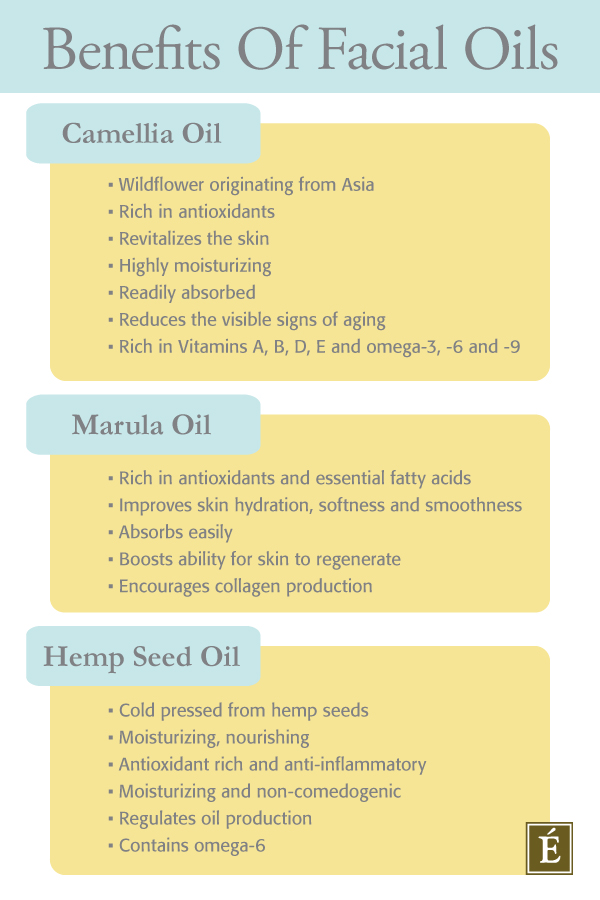
Best Facial Oils For Skin Care Products
Camellia
If the camellia plant sounds unfamiliar to you, you’re not alone. While the wildflower isn’t as well-known as some of your favorite flora, it’s quietly become the skin care industry’s go-to. Because the Japanese-originating ingredient readily absorbs into the skin (no leftover grease!), it’s become a favorite among both those with trepidation about the world of facial oil and on-the-go individuals who want a light product. It’s also highly transdermal (penetrating deeply through the skin’s layers to heal and hydrate from the inside out) and non-comedogenic (doesn’t block pores), so you won’t be suddenly breaking out.
Distilled from cold-pressed camellia seeds, the oil is rich in fatty acids and antioxidants that serve to rejuvenate the skin while reducing the appearance of aging. Roughly 82% of camellia oil’s fatty acids are composed of oleic fatty acid (omega-9). The oil also allows your skin to replenish with key vitamins: A, B, D, E as well as omega-3, rectifying dryness and damage from sun exposure. In fact, this oil is actively superior when it comes to restoring elasticity and nourishing, a must for dry or noticeably aged-looking skin.

Marula
Derived from the African marula fruit tree, once wild and extremely rare, marula has long-since been known for its medicinal capabilities — it was even once known to promote fertility. The oil is extracted from the kernels within the marula fruit as well as from the nut at its center. It is also high in protein and antioxidants like Vitamin E, which both hydrates and boosts the production of collagen. In short, this should be considered a miracle skin care ingredient.
Like camellia, the now-cultivated marula is also quickly absorbed by the skin, so much that it actually serves as a great base for makeup. Because marula encourages the skin’s innate ability to regenerate itself, it is one of the rare ingredients that offers a different benefit to every skin type. Acne? No worries, marula contains microbial properties that may stop pimple-catalyzing bacteria in its tracks. It’s also non-greasy. Alternatively, if you’re looking to combat the visible signs of aging, its capacity as a moisturizer can be highly effective on fine lines and as a general hydrator. As for those navigating skin conditions such as eczema or psoriasis, marula is believed to reduce the feeling of itchiness or irritation. It is also known to smell amazing and is the base of many perfumes.
Hemp Seed
Cold-pressed from hemp seeds, hemp oil is a non-comedogenic hydration powerhouse. Chock-full of fatty acids and vitamins, hemp seed oil is known to promote cell regeneration and skin turnover. Because dryness can lead to overproduction of oil (a recipe for acne stimulation), utilizing hemp seed as a moisturizer helps to reduce acne by balancing excess oil. It’s also highly anti-inflammatory, ideal for acne as well as conditions like psoriasis, and it even improves dermatitis.
And that’s not all, hemp oil also offers nutrients that can’t be produced by the body. Linoleic acid and oleic acids are highly nourishing and greatly aid in reducing fine lines and wrinkles. You can apply a small amount to desired areas, or you can use it all over as a great supplement to your skin care routine.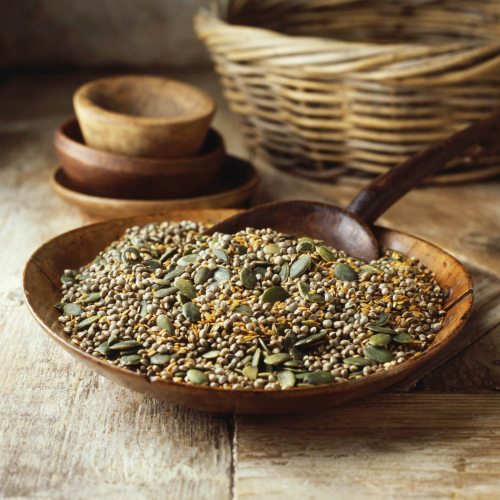
Jojoba
You may be a little more familiar with this oil. Grown in the desert of North America, the jojoba plant prefers an extremely harsh environment. It also produces a nut from which an oil is created, known for its healing properties. Jojoba oil is also particularly special because it is the botanical substance that best mimics human sebum. As such, its beauty benefits are quite literally endless. It’s not only non-comedogenic, but your skin literally can’t distinguish it from the oil your body produces naturally, which means it’s non-irritating and sits on top of the skin to seal in moisture.
But that’s not all jojoba facial oil has to offer. Due to its vitamin E nutrients, experts believe it is ideal to both assist acne and address the appearance of scarring. An antioxidant powerhouse, jojoba has the ability to reset the oxidative stress on your skin caused by sun exposure and general environmental factors. It’s also antibacterial (goodbye breakouts!) and anti-inflammatory, helping to simultaneously tackle skin that feels irritated from eczema and other conditions. Needless to say, it’s an all-in-one skin savior making it a must-have for combination skin.
Grapeseed
Long-since viewed as a cooking alternative to the much heavier olive oil, grapeseed is also a favorite to be applied topically as a natural beauty product. Extracted from leftover grape seeds (just another gift from wine-makers), grapeseed oil is similar to marula containing microbial properties, perfect for tackling acne-causing bacteria.
Interestingly, grapeseed is unique because it actually helps pre-existing vitamins in your skin (C and E, specifically) to do their job easier and is also anti-inflammatory to help with irritation. Experts claim that grapeseed oil is not only a potent moisturizer, but its restructuring abilities improve skin’s elasticity and evens tone. Grapeseed is also full of antioxidants, which we know by now means reversing the appearance of wrinkles, all while sealing in what’s already serving your skin. It’s a win-win.
Rosehip
When it comes to skin care, rosehip oil has been a lauded staple. Known as one of Kate Middleton’s favorite skin care ingredients, rosehip oil is packed with Vitamin A and has become an anti-aging phenom. This may also be the key to navigating dehydrated or moisturizing eczema-prone skin, simply due to the sheer amount of fatty acids that make up its formula.
Also present in droves are vitamins C and E, undoing oxidative damage and taking on scars. It’s also very capable in improving the appearance of uneven skin tone caused by conditions such as melasma or general sun damage.

Olive
By preventing the appearance of premature aging caused by sun damage, olive oil remains high up on the list of worthwhile antioxidant-filled products for skin and is even recommended to manage breakouts. Olives are rich in vitamins A, D, E, and K. These vitamins all provide something different in the skin care realm, but most importantly, deeply hydrate.
Sunflower
Due to the fact it’s loaded with vitamins A, D and E, sunflower oil also makes the list as a beauty product worth watching. Sunflower is particularly fast-absorbing and non-comedogenic, making it ideal to moisturize dry skin prone to breaking out.
And when it comes to acne-prone skin in particular, sunflower oil can be a real lifesaver. Like hemp seed, sunflower oil contains linoleic acid (omega 6), which is known for its healing properties. It also protects the skin’s natural barrier and has an anti-inflammatory effect, making it ideal for dry skin or eczema.
Seabuckthorn
Despite its name, seabuckthorn oil is not derived from the ocean floor but the fruit and seeds of the seabuckthorn plant. While the thorns on the shrub make it difficult to harvest, it's an antioxidant explosion (wave goodbye to UV damage) and excellent for sensitive skin. No wonder it’s been a favorite of Chinese medicine for a thousand years. The oil is quickly absorbed into the skin when applied.
If you needed further convincing of its magical properties, the superfruit’s vitamin C levels are 12 times that of an orange. It also contains over 190 nutrients and phytonutrients and uniquely high fatty acid content. The skin conditions it’s known to improve range from rosacea to psoriasis due to its ability to reduce swelling and redness. It also is shown to improve uneven skin tone while increasing collagen production, resulting in a brighter complexion than ever before.
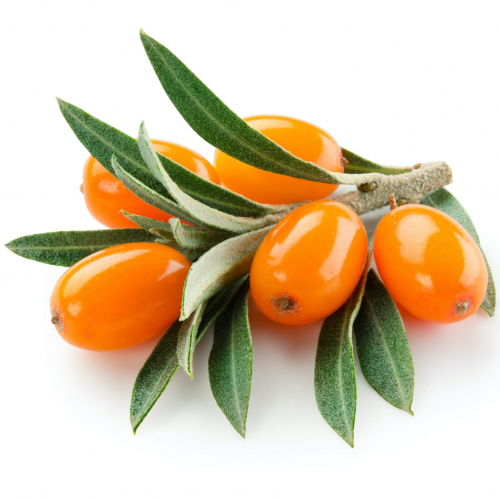
Argan
Considering the argan tree is the world’s oldest living tree species, it should come as no surprise it has a whole host of beauty benefits. Argan oil comes from the kernels of argan fruit (which resemble large olives), and boasts such high levels of fatty acids and vitamins, it’s been nicknamed “liquid gold.” North African women have been utilizing the oil for centuries, but it’s more recently become popular among beauty junkies to reverse the appearance of sun and dark spots, while also balancing the skin’s sebum for a fresh, matte complexion.
This is one of the rare oils that truly does it all: addressing oxidative stress via key vitamins while linoleic acid soothes inflamed skin, improving overall texture. Studies have also shown that applying argan oil regularly begins to alter skin at a cellular level, actually increasing skin’s water retention. If you’re looking for intense hydration, fast, look no further.
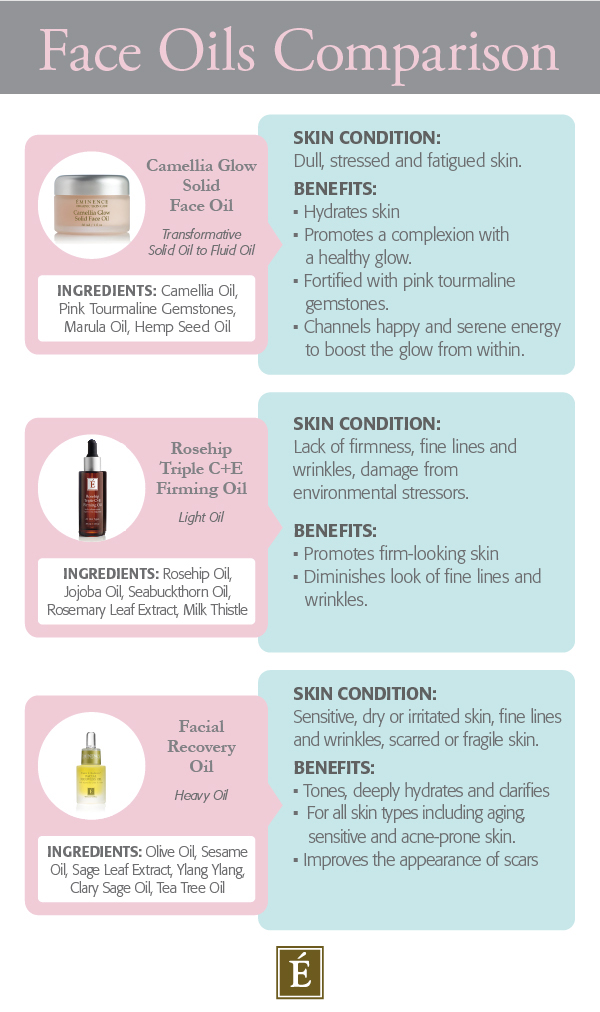
Which Eminence Organics Facial Oil Should I Use For My Skin Type?
While Eminence Organics facial oils are formulated to cater to all skin types, there are some that address more specific issues. Whether you’re looking to balance dry or oily skin, or want to see results but are forced to tiptoe around sensitive skin - there’s an oil for you.
For Dry Skin
Sure, camellia oil is a great asset on its own, but adding marula into the mix is like bathing your skin in recovery elixir. Eminence Organics’ richest facial oil, the Camellia Glow Solid Face Oil, combines luxurious ingredients camellia and marula to create an experience that’s deeply restorative and hydrating. Camellia is known to be moisturizing, making this the oil to smooth and soften the skin. A solid oil that melts into a silky fluid easily absorbed by the skin, Camellia Glow Solid Face Oil is particularly therapeutic. With 87% of users experiencing a noticeable healthy glow after using the formula, this oil ensures that drier skin types will enliven and brighten their complexion.
For Sensitive Skin
If you’re in the market for something that’s also intensely moisturizing that won’t irritate sensitive skin, our Rosehip Triple C+E Firming Oil will address all hydration needs without causing your skin to break out into a riot. Studies have shown rosehip oil’s vitamin-stacked formula can target drying effects of environmental stressors (think sun exposure or even effects of pollution), while deeply hydrating the skin from the inside out. For those hoping to improve the appearance of dry, red or cracked skin, the added benefits of superfruit seabuckthorn and the ever-resilient jojoba oil provide a moisture blast. Expect nothing short of transformed soft, supple skin.
Labelled a “travel bag essential” by Victoria Beckham, the Facial Recovery Oil is another great option for those who want a serious skin boost for sensitive skin. The Beyond Organic Collection of Biodynamic® products is clinically ensured to be hypoallergenic, with every ingredient organic and certified Biodynamic® (a process that considers both the quality of the materials and manufacturing itself). Containing both deeply moisturizing olive oil, this product evens skin tone and delivers extra moisture around the eye area to quell any puffiness. In essence: a skin care powerhouse in liquid form.
You can watch Team-member Gina W. from the Outside Sales team demonstrate using the Facial Recovery Oil below as she winds down for the night.
For Oily Skin
Rectifying signs of aging and drying environmental stress is not all the Facial Recovery Oil is ready to take on. It also contains ylang ylang and clary sage to balance the amount of oil on the skin and reduce the appearance of shininess. The ingredients also work together to tackle impurities and improve the appearance of uneven skin tone, with ylang ylang deeply moisturizing the complexion.
For Combination Skin
If your skin is particularly unpredictable, you’re going to want an oil that covers all your bases. Our Rosehip Triple C + E Firming Oil addresses most skin ailments to do with severe dehydration while the jojoba extract’s ability to mimic natural sebum convinces your skin it’s producing all that goodness on its own. Seabuckthorn’s vitamin C properties also kick hydration into high gear, so you receive a range of targeted skin solutions in just one product.
Where Do They Fit In A Skin Care Routine?
The nature of a skin care routine is highly personal. Everyone’s skin is different and each individual has certain preferences for its appearance. Nonetheless, a general rule of thumb for most products is to start with the lighter formulas first. Allow them to soak into the skin, then move on up to thicker treatments.
While oils have the capacity to penetrate multiple layers of solution, you should reap the full benefits of a high-quality, organic oil by ensuring you layer it into the correct step of your skin care routine. Facial oils can be applied before or after moisturizers, depending on the products you’re using. They can be applied to treat your skin before your moisturizer, or afterwards so they can sink through the moisturizer into your skin. If you’ve heard of oils coming after moisturizers, sometimes the oil in question are mineral oils that are of such high density they won’t allow for the absorption of anything following the oil (for reference, Eminence Organics facial oils do not contain mineral oils). Another option is to mix your oil with your moisturizer. You can simply add a couple of drops to your other products to lock in their benefits. It’s just about identifying what might work best for your skin.
Find out more about adding facial oils to your skin care routine in this In The Mix video:
How To Apply A Facial Oil
It is important to dispense the right amount of oil (2-4 drops) and warm it up in your hands before applying. This will encourage a nice slip and glide, while mitigating any dragging, pulling or irritation of the skin’s surface due to friction. Be sure to apply more oil as needed to avoid the risk of irritating the skin while working the product in — this is especially important for dry skin types.
Massage the warmed oil onto the face and neck using circular and upward massage motions. Massaging the facial oil into skin will not only help to distribute the product evenly, it will warm up the surface of the skin, allowing for better product absorption all while helping to de-puff and contour the face by encouraging lymphatic drainage.
While massaging the oil into the skin is the best way to apply it in most cases, it is recommended that individuals with reactive skin or with any evident trauma or inflammation (think: rosacea or inflamed acne and pustules) pat and press the oil into the skin instead of massaging. This will prevent further irritation or spreading of acne-causing bacteria. When in doubt, consult your local Eminence Organics spa for guidance about the application of facial oils on your unique skin.
Now that we’re becoming more versed in skin care, it’s become apparent that oils are as necessary an addition to your regime as moisturizing lotions. Particularly as most of the latter are heavily water-based and therefore not emollient enough to tackle the tough issues. If you’re navigating poor air quality and general environmental stresses, facial oil can serve as your skin’s shield. Temperature shifts are also the ideal time to be working an oil into your daily routine; cold weather can leave your face dry and flaky, while warmer temperatures means constantly mediating UV damage. If you feel your skin drying out, dermatologists claim a dollop of oil can be more effective than moisturizing.
Unlike most skin care products which are clearly designated to specific areas of skin, oil is just as beneficial applied to any part of your body as it is your visage. It's a great addition to a full-body beauty routine, especially if you are experiencing more pronounced dryness or eczema in a particular area. Bottom line? When it comes to hydration, facial oil is the product that will prove itself the most valuable weapon in your skin care arsenal over and over.
To get the most from your skin care, use our Spa Locator to find a spa for a consultation on our facial oils and the product or ingredients that best suit your needs. And, let us know on social media which facial oil you find works best for your skin type.


